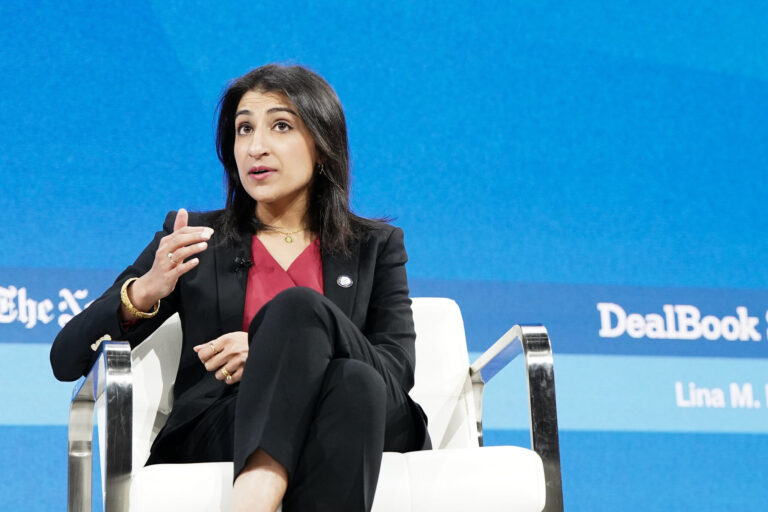The FTC just secured a big win in its IQVIA/Propel case, the agency’s fourth blocked merger in as many weeks. This string of rapid-fire victories quieted a reactionary narrative that the agency is seeking to block too many deals and also should win more of its merger challenges. (“The food here is terrible, and the portions are too small!”) But the case did a lot more than that.
Blocking Anticompetitive Deals Is Good—Feel Free to Celebrate!
First and foremost, this acquisition, based on my read of the public court filings, was almost certainly illegal. Blocking a deal like this is a good thing, and it’s okay to celebrate when good things happen—despite naysayers grumbling about supporters not displaying what they deem the appropriate level of “humility.” Matt Stoller has a lively write-up explaining the stakes of the case. In a nutshell, it’s dangerous for one company to wield too much power over who gets to display which ads to healthcare professionals. Kudos to the FTC caseteam for securing this win.
Judge Ramos Gets It Right
A week ago, the actual opinion explaining Judge Ramos’s decision dropped. It’s a careful, thorough analysis that makes useful statements throughout—and avoids some notorious antitrust pitfalls. Especially thoughtful was his treatment of the unique standard that applies when the FTC asks to temporarily pause a merger pending its in-house administrative proceeding. Federal courts are supposed to play a limited role that leaves the final merits adjudication to the agency. That said, it’s easy for courts to overreach, like Judge Corley’s opinion in Microsoft/Activision that resolved several important conflicts in the evidence—exactly what binding precedent said not to do. This may seem a little wonky, but it’s playing out against the backdrop of a high-stakes war against administrative agencies. So although “Judge Does His Job” isn’t going to make headlines, it’s refreshing to see Judge Ramos’s well-reasoned approach.
The IQVIA decision is also great on market definition, another area where judges sometimes get tripped up. Judge Ramos avoided the trap defendants laid with their argument that all digital advertising purveyors must be included in the same relevant market because they all compete to some extent. That’s not the actual legal question—which asks only about “reasonable” substitutes—and the opinion rightly sidestepped it. We can expect to see similar arguments made by Big Tech companies in future trials, so this holding could be useful to both DOJ and FTC as they go after Meta, Google, and Amazon.
How Does This Decision Fit Into the Broader Project of Reinvigorating Antitrust?
One core goal shared by current agency leadership appears to be making sure that antitrust can play a role in all markets—whether they’re as traditional as cement or as fast-moving as VR fitness apps.
The cornerstone of IQVIA’s defense was that programmatic digital advertising to healthcare professionals is a nascent, fast-moving market, so there’s no need for antitrust enforcement. This has long been page one of the anti-enforcement playbook, as it was in previous FTC merger challenges like Meta/Within. But, in part because the FTC won the motion to dismiss in that case, we have some very recent—and very favorable—law on the books rejecting this ploy.
Sure enough, Judge Ramos’s IQVIA opinion built on that foundation. He cited Meta/Within multiple times to reject these defendants’ similar arguments that market nascency provides an immunity shield against antitrust scrutiny. “While there may be new entrants into the market going forward,” Judge Ramos explained, “that does not necessarily compel the conclusion that current market shares are unreliable.” Instead, the burden is on defendants to prove historical shifts in market shares are so significant that they make current data “unusable for antitrust analysis.” His opinion is clear, and clearly persuasive—DOJ and a group of state AGs already submitted it as supplemental authority in their challenge to JetBlue’s proposed tie-up of Spirit Airlines.
A second goal that appears to be top-of-mind for the new wave of enforcers is putting all of their legal tools back on the table. Here again, the IQVIA win fits into the broader vision for a reinvigorated antitrust enterprise.
Just a few weeks before this decision, the FTC got a groundbreaking Fifth Circuit opinion on its challenge to the Illumina/GRAIL deal. Illumina had argued that the Supreme Court’s vertical-merger liability framework is no longer good law because it’s too old. In other words, the tool had gotten so dusty that high-powered defense attorneys apparently felt comfortable arguing it was no longer usable. That happened in Meta/Within as well: Meta argued both of the FTC’s legal theories involving potential competition were “dead-letter doctrine.” But in both cases, the FTC won on the substance—dusting off three unique anti-merger tools in the process.
IQVIA adds yet another: the “30% threshold” presumption from Philadelphia National Bank. Like Meta and Illumina before it, IQVIA argued strenuously that the legal tool itself was invalid because it had long been out of favor with the political higher-ups at federal agencies. But yet again, the judge rejected that argument out of hand. The 30% presumption is alive and well, vindicating the agencies’ decision to put it back into the 2023 Merger Guidelines.
Stepping back, we’re starting to see connections and cumulative effects. The FTC won a motion to dismiss in Meta/Within, lost on the injunction, but made important case law in the process. IQVIA picked up right where that case left off, and this time, the FTC ran the table.
Positive projects take time. It’s easier to tear down than to build. And both agencies remain woefully under-resourced. But change—real, significant change—is happening. In the short run, it’s impressive that four mergers were blocked in a month. In the long run, it’s important that four anti-merger tools are now back on the table.
John Newman is a professor at the University of Miami School of Law. He previously served as Deputy Director at the FTC’s Bureau of Competition.
